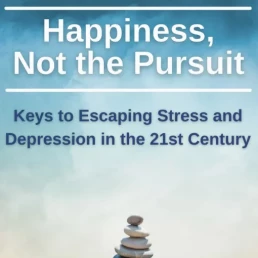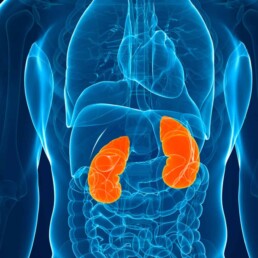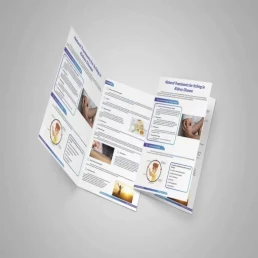Kidney disease is a serious health problem that affects 1 in 7 people in the USA. Because of the elaborate way the kidneys filter the blood of waste products, they end up getting exposed to higher concentrations of environmental toxins. Pesticides are chemicals that farmers use to protect crops from pests. They, too, can affect the kidneys. This blog will discuss the connection between pesticides and kidney problems.
By Majd Isreb, MD, FACP, FASN, IFMCP
Pesticides: What Are They?
Pesticides are chemicals that farmers use to protect crops from pests like insects, rodents, and weeds. These pests can eat or damage the crops, leading to less food production. To ensure they have a successful harvest, farmers often use pesticides.
Pesticides are not just one type of chemical. They come in many forms and can be used to control a wide variety of pests. For example, insecticides kill insects, herbicides kill weeds, and rodenticides kill rodents. They can be sprayed on crops, added to soil, or even applied to seeds before they’re planted.
Pesticides and Health
While pesticides play a big role in helping produce enough food, these chemicals can also be harmful. Pesticides are designed to kill or repel living organisms, and unfortunately, they can affect other organisms, too, including humans.
When humans are exposed to pesticides, it can lead to several health problems. Short-term or acute exposure can cause immediate problems like skin and eye irritation, headaches, dizziness, nausea, and in severe cases, seizures or loss of consciousness.
Long-term, or chronic, exposure can lead to more serious health issues. Researchers have linked pesticide exposure to various health problems, including cancer, problems with our nervous system and hormones, and even kidney disease.
Join us to end the kidney disease epidemic and receive the FREE Report “5 Pitfalls to Avoid When Caring for Kidney Patients”
Linking Pesticides and Kidney Problems
In recent years, scientists have started to find connections between pesticides and kidney disease. A study in Sri Lanka found a strange type of kidney disease that wasn’t caused by the usual suspects like diabetes or high blood pressure. This disease was mostly found in areas where a lot of pesticides were used.
Another study in Nicaragua, a country in Central America, found a similar connection. People working in agriculture who were exposed to pesticides seemed to have more kidney problems than those who weren’t exposed to these chemicals.
A recent study in Texas looked at the role of pesticide exposure in the development of kidney disease in migrants who developed this type of kidney disease. Researchers found that exposure to many agrochemicals, particularly paraquat, was associated with kidney disease.
And it’s not just in other countries. Analysis of the National Health and Nutrition Examination Survey (NHANES) data in the United States showed that people who are exposed to pesticide malathion are at a higher risk of developing serious kidney disease.
How Could Pesticides Harm the Kidneys?
The exact process of how pesticides could harm the kidneys isn’t fully known. But scientists have a few ideas.
One possibility is that pesticides cause oxidative stress in our cells, including the cells in our kidneys. This cellular stress can lead to damage and cause the cells to function poorly.
Pesticides could also damage DNA, the blueprint for all our body’s cells. If the DNA in kidney cells gets damaged, it can lead to kidney disease.
Another theory is that pesticides cause inflammation, which is like a fire inside our body. This internal fire can damage many parts of the body, including the kidneys.
The kidneys act as a filter for our blood, removing waste products and balancing the levels of water and minerals. Because of this role, the kidneys can be exposed to higher levels of harmful substances, including pesticides.
The Way Forward: Protection and Prevention
Knowing that pesticides could lead to kidney problems, it’s vital to take steps to protect people from these chemicals. This is particularly important for people who work directly with pesticides, such as farmers and other agricultural workers.
Protecting workers
Safety measures include providing protective clothing, such as gloves and masks, that can reduce direct contact with pesticides. Training programs that educate workers about the safe handling, storage, and disposal of pesticides are also crucial. Furthermore, we can develop and enforce regulations that limit the types and amounts of pesticides used.
Moreover, we should strive to minimize pesticide use wherever possible. There are many different farming techniques that can help achieve this goal. For example, integrated pest management (IPM) is a strategy that aims to control pests in a way that minimizes harm to people and the environment. It involves carefully monitoring crops for pests and only using pesticides as a last resort. Organic farming is another approach that avoids the use of synthetic pesticides altogether.
Protecting yourself
For those who do not work directly with pesticides, minimizing exposure can be more challenging due to their widespread use. However, actions such as washing fruits and vegetables before eating, choosing organic foods, and reducing consumption of processed foods can help reduce the risk.
In the medical field, providers need to be aware of this potential link between pesticides and kidney disease. When they see patients with kidney problems, they should consider whether these patients might have been exposed to pesticides. This awareness can guide their decisions about tests and treatments.
The bottom line
While we still need more research to fully understand the link between pesticides and kidney disease, the evidence so far is a clear warning sign. Pesticides, while helpful for food production, can potentially harm our health, specifically our kidneys. However, knowing about this potential risk is a powerful tool to take steps to protect ourselves and our communities.






